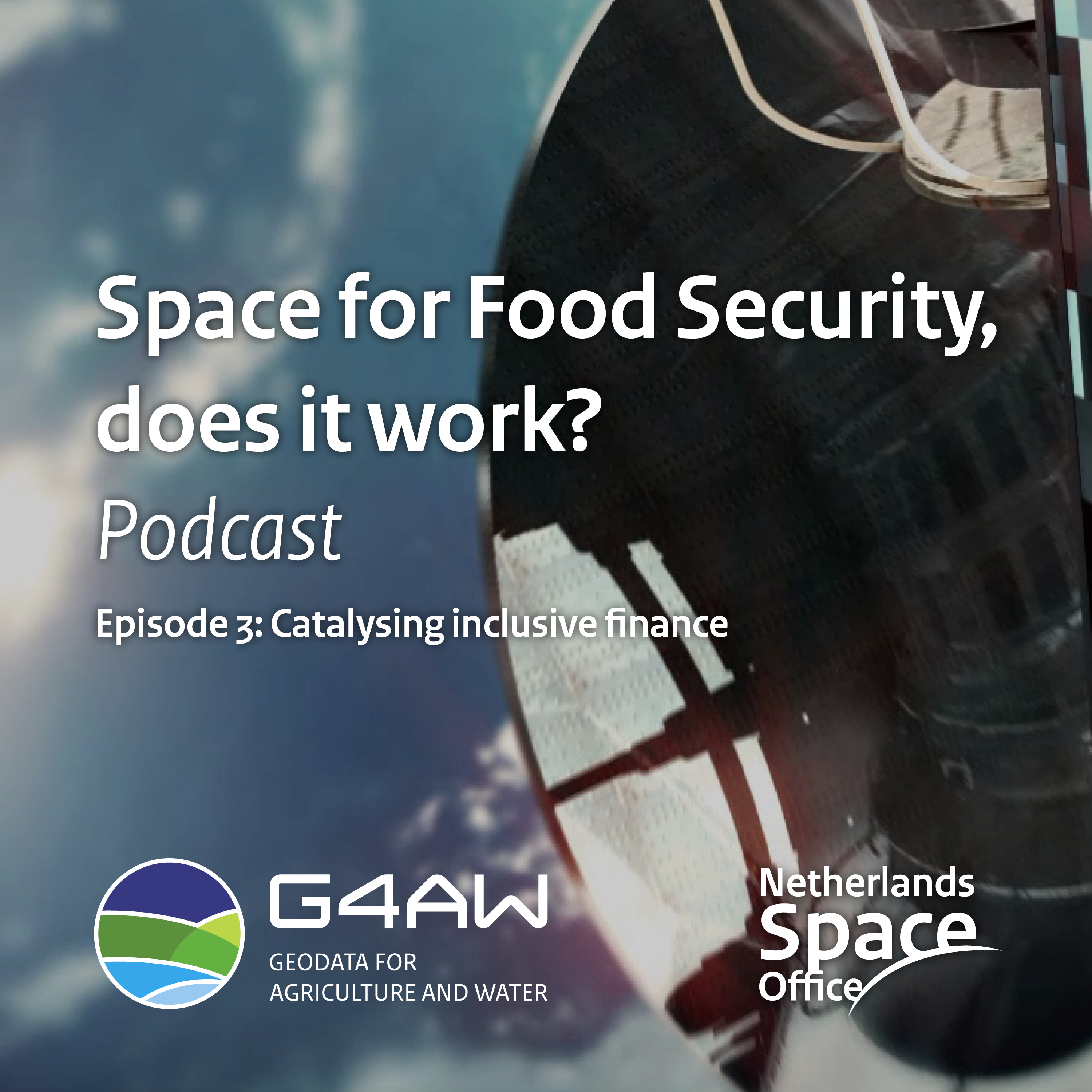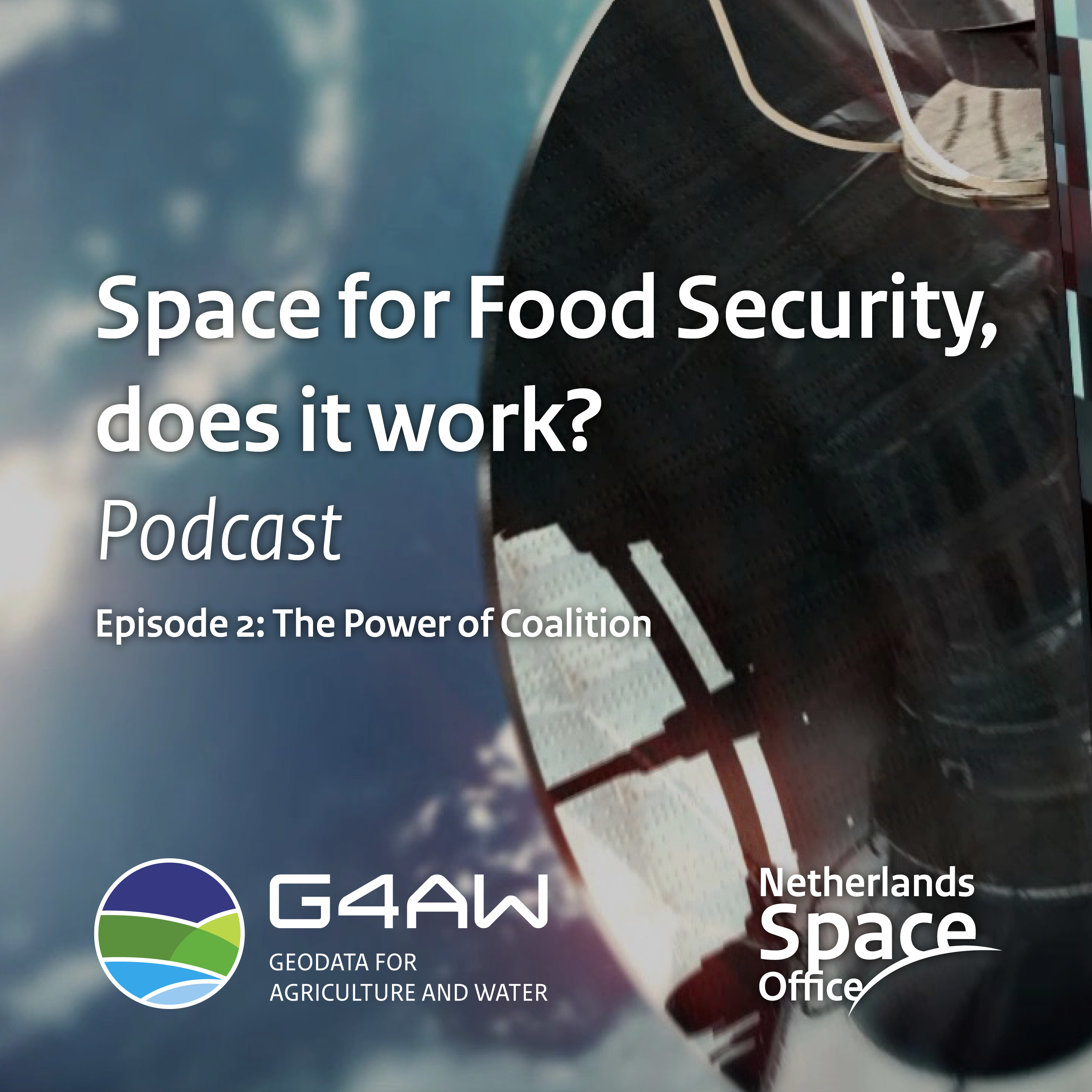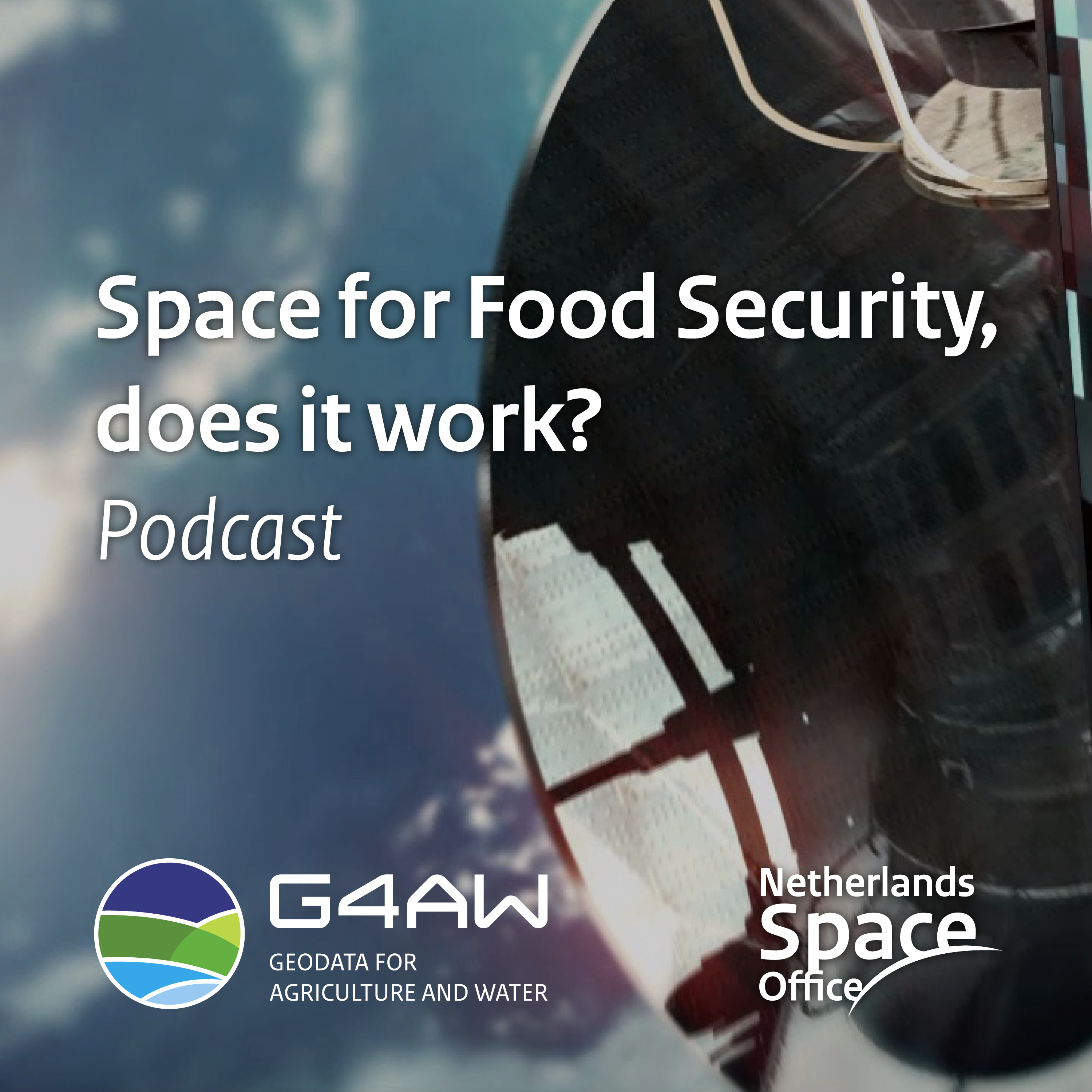The use of digital data as an information source for farming practices has made giant leaps forwards, driven by both innovative remote sensing technologies and the exponential growth of the use of eg. mobile phones and local access to information. Digital information services are relatively easy to specify to end user needs; easy to disseminate; easy to scale. In theory farmers, with the right assistance and products, can leap the information divide. Impacts on water/chemicals/pesticide use, yield improvement, increased come, all seem possible.
With climate change in action, and more at the horizon, can access to information services help farmers to adapt, and adjust their practices to the demands of this changing world and a changing climate?
In the first episode of a three part podcast series produced by the Netherlands Space Office (NSO) we ask ourselves: does it actually work? The NSO, Geodata for Agriculture and Water (G4AW) Facility is a grant programme of the Dutch Ministry of Foreign Affairs that promotes and supports satellite based services which positively impact the lives of smallholder farmers in Africa and SE-Asia.
The title of this first episode is “True Clients” and will focus on the transition from recipients to seeing end-users and small farmers as clients, with demands, ambitions, and requirements.

The use of geodata technology in the development of financial services for smallholder farmers and the poor is on the rise! If we succeed...

The use of digital data as an information source for farming practices has made giant leaps forwards, driven by both innovative remote sensing technologies...

From the 3rd to 6th of October the Netherlands Space Office, in collaboration with Rabo Foundation, will organize the 'Space for Food Security' conference....